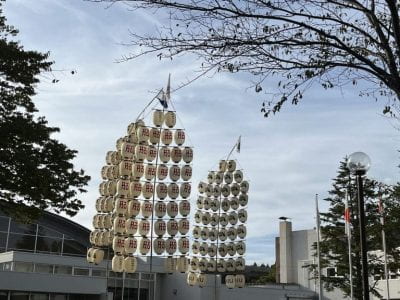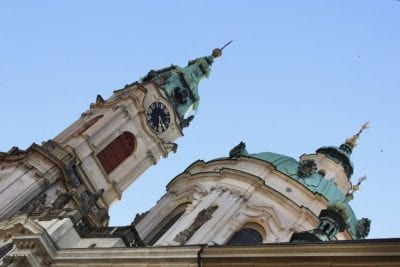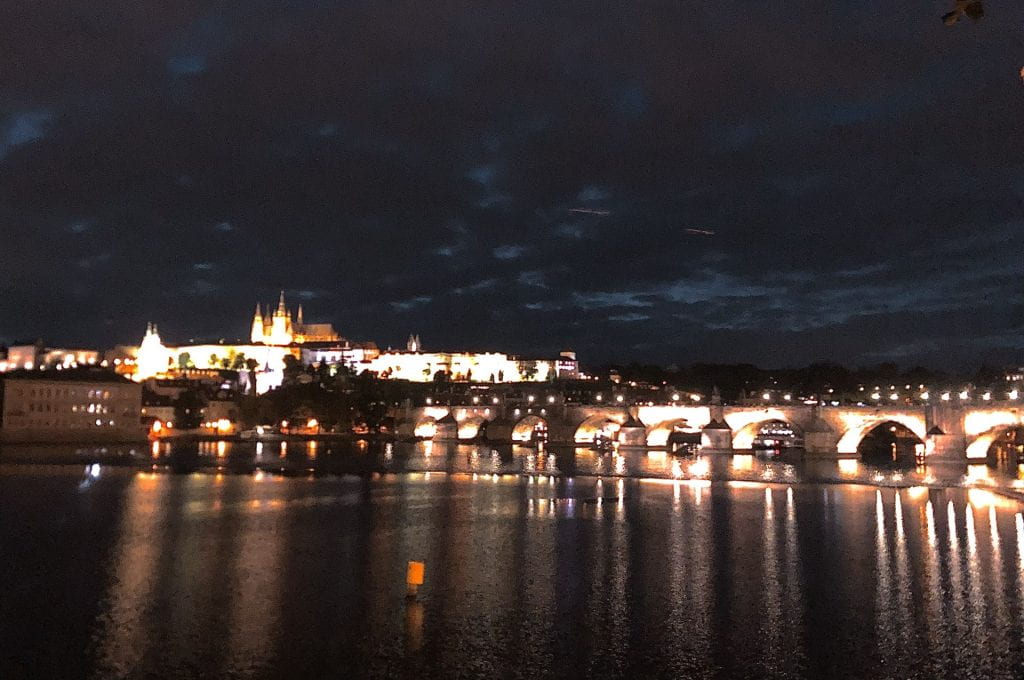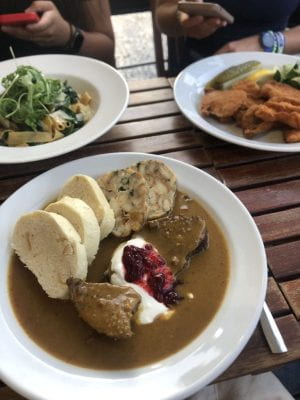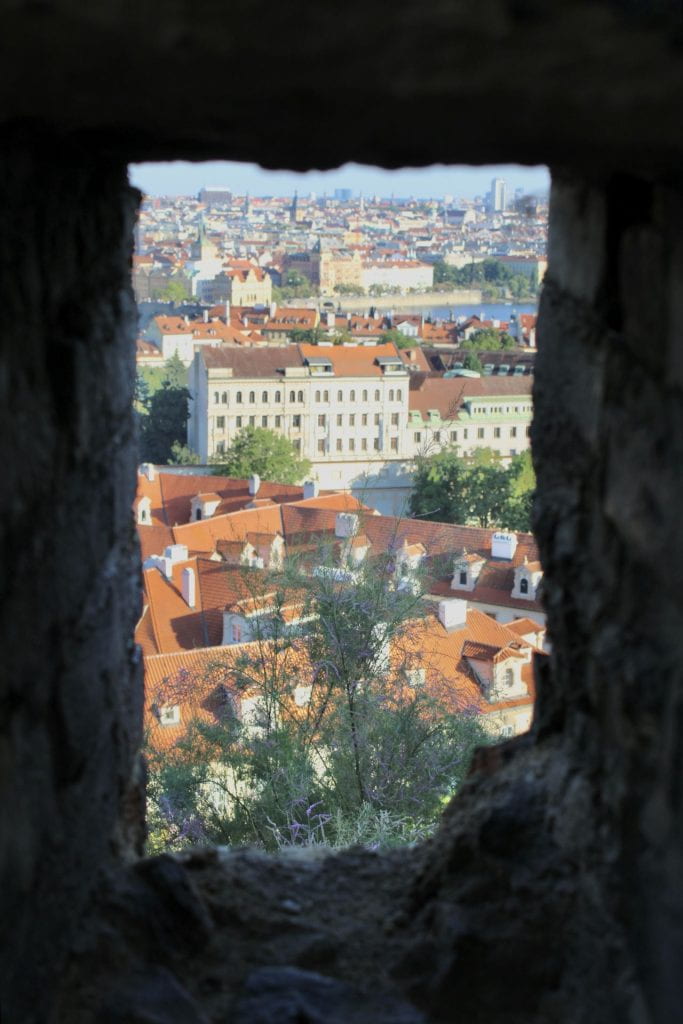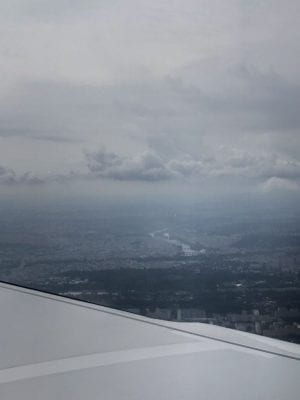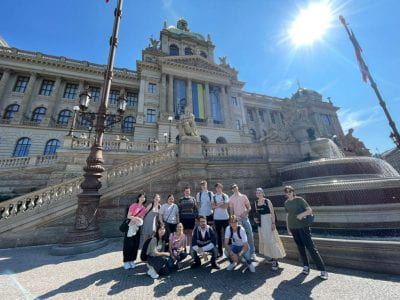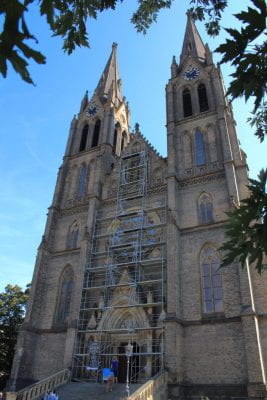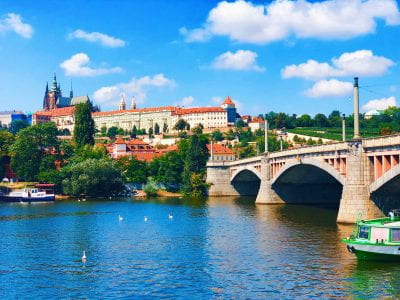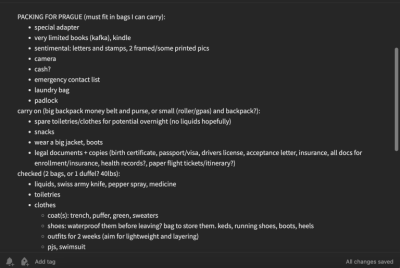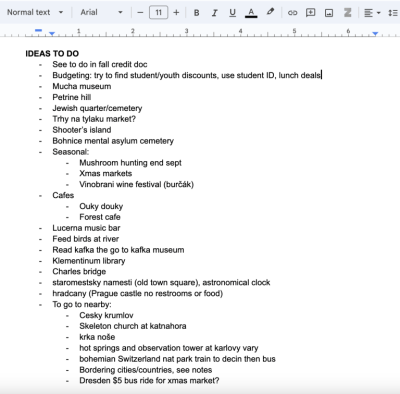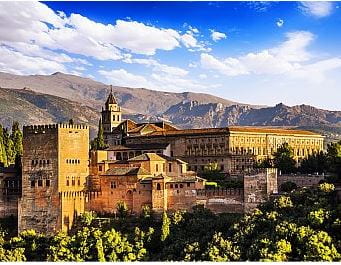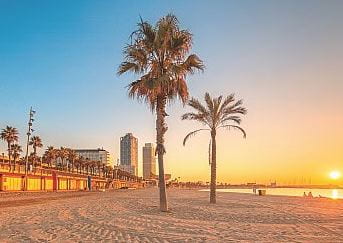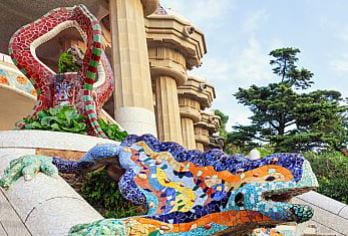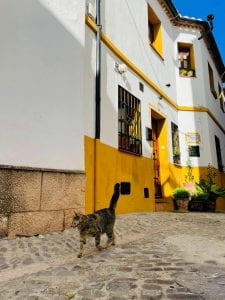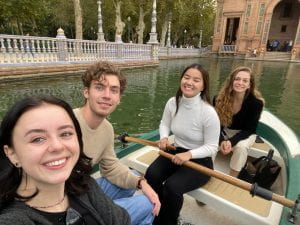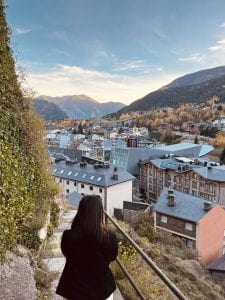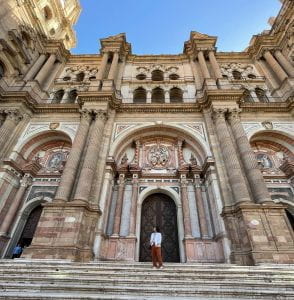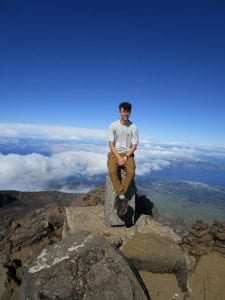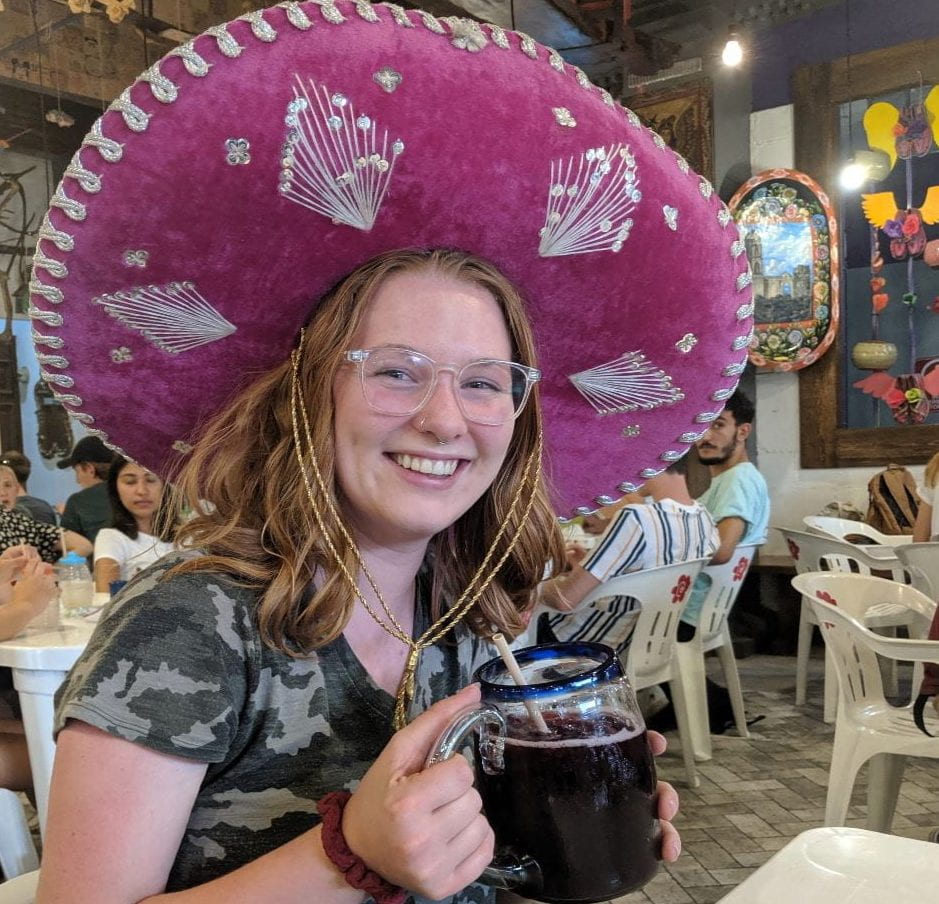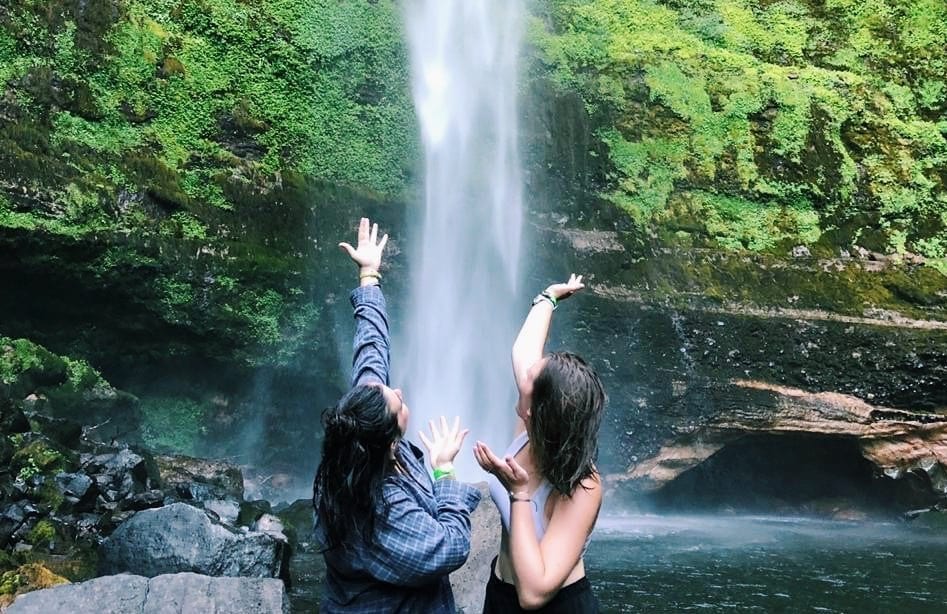By McKenzie Harris
November 3rd, 2023

^sundial painted on a building in Český Krumlov^
I’m now exactly two months into my study-abroad trip. Because I leave in around a month and a half, that means I’m over halfway done with my time in Prague. I was very surprised by this two-month anniversary; after the one-month mark, I’d apparently continued to think I’d been here for “one month” for several weeks after. The rest of this entry will explore how I’ve conceptualized time passing as a study abroad student.

^an old boat by a pond in Český Krumlov^
Sometime after the “I just got here” stage began “the middle,” an amorphous haze of time in which many things have happened, much time has passed, yet the impending “final stretch” still came like a jump scare. Weeks have passed in quick succession, eating up fall, and somehow my mindset has begun to shift to the question of what I will do with my last weekends. So what exactly happened in the blur of the middle? That question was on my mind when I started planning my mid-program blog post, and I decided it deserved a post of its own. Upon reflection, my feeling of empty time passing during October was an illusion caused by the combination of midterm season, health issues, and (paradoxically) my plans and trips. To elaborate:
- During midterms, students spent a lot of time studying for classes, and less time was given to more memorable pursuits.
- In the past two weeks, I injured my knee and got a cold, which has kept me apartment-bound. I haven’t been able to do as many adventurous and social things as I could earlier in the semester.
- Lots of plans made time pass quickly. In addition, it created a mindset where the time in between these trips was allocated for rest and school. With this mindset, a week between trips would zoom by, because I didn’t do anything present-focused. I was just doing homework and chilling, anticipating the next thing.
Despite my surprise at time’s passing, I experienced a lot of fun things in October. Here are some highlights and updates from recently:
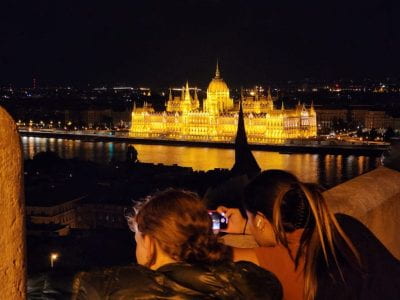
^Fisherman’s Bastion^
Budapest! I already wrote a post about this, so check it out if you want to hear more!
iddle
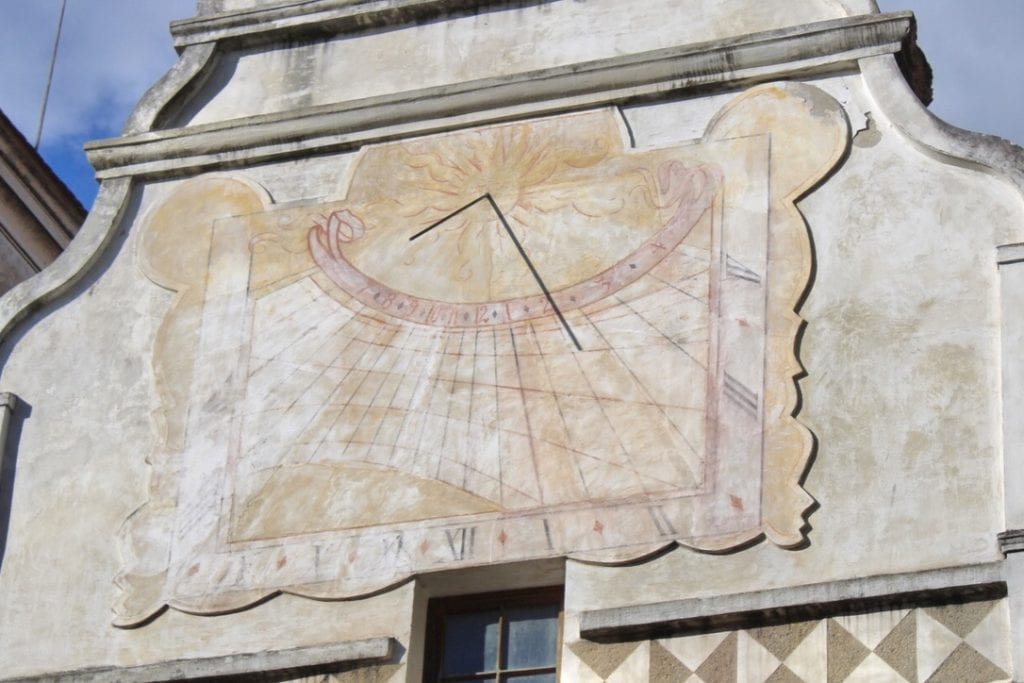
I’m now exactly two months into my study-abroad trip. Because I leave in around a month and a half, that means I’m over halfway done with my time in Prague. I was very surprised by this two-month anniversary; after the one-month mark, I’d apparently continued to think I’d been here for “one month” for several weeks after. The rest of this entry will explore how I’ve conceptualized time passing as a study abroad student.
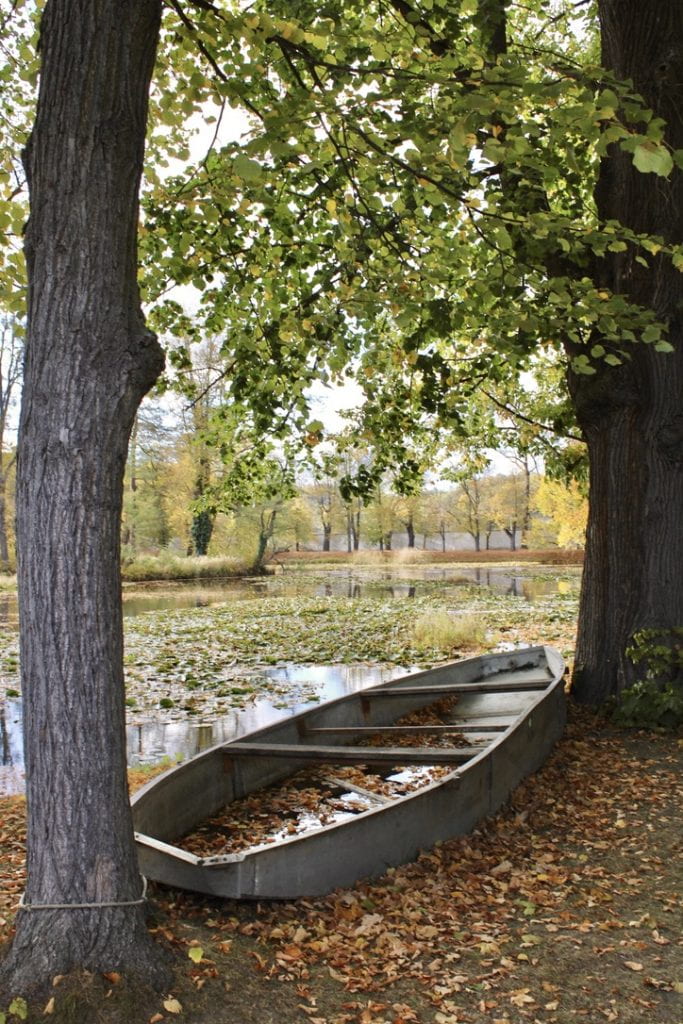
Sometime after the “I just got here” stage began “the middle,” an amorphous haze of time in which many things have happened, much time has passed, yet the impending “final stretch” still came like a jump scare. Weeks have passed in quick succession, eating up fall, and somehow my mindset has begun to shift to the question of what I will do with my last weekends. So what exactly happened in the blur of the middle? That question was on my mind when I started planning my mid-program blog post, and I decided it deserved a post of its own. Upon reflection, my feeling of empty time passing during October was an illusion caused by the combination of midterm season, health issues, and (paradoxically) my plans and trips. To elaborate:
- During midterms, students spent a lot of time studying for classes, and less time was given to more memorable pursuits.
- In the past two weeks, I injured my knee and got a cold, which has kept me apartment-bound. I haven’t been able to do as many adventurous and social things as I could earlier in the semester.
- Lots of plans made time pass quickly. In addition, it created a mindset where the time in between these trips was allocated for rest and school. With this mindset, a week between trips would zoom by, because I didn’t do anything present-focused. I was just doing homework and chilling, anticipating the next thing.
Despite my surprise at time’s passing, I experienced a lot of fun things in October. Here are some highlights and updates from recently:

Budapest! I already wrote a post about this, so check it out if you want to hear more!
^An outdoor Signal Festival exhibit on the front of the library where I study (Městská knihovna)^
School: My midterms went well, and without test anxiety! Between now and finals, I’ll focus on a podcast research project for my gender studies class, and prepping for final projects. I have many plans in the works for the next month (trips to Dublin, Vienna, and Dresden, and a Hozier concert!), so school will once again have to be a smaller priority for me. I mentioned this in my mid-program post yesterday, but I’d like to take more opportunities to talk to my classmates and hear about their experiences in different countries before the end of the semester.



Český Krumlov! My flatmate and I took a day trip to this medieval town and fell in love with it. We spent hours by the river, looking at the castle, and walking under autumn leaves. I have many pictures from this trip in my Photos page.
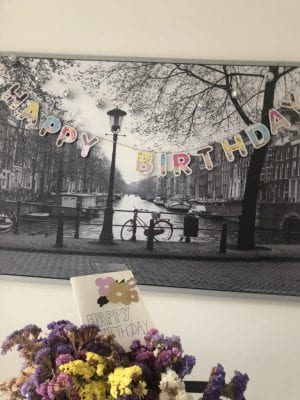

Last week, my flatmates and I celebrated both my 21st birthday and Halloween. My 21st birthday was slightly anticlimactic, being in a place where I could already legally buy alcohol, but it was still a fun day!



Bohemian Switzerland! I went with a group of roommates and friends to hike for a day at the Bohemian Switzerland National Park in the Czech Republic. It was a day filled with stunning views, perfect fall colors, and many mushrooms. Last year, a fire came through the park and left large swathes of destruction, but now, there are carpets of moss and saplings growing from the ashes (you can see this in the left picture above). The park’s main attraction, Pravčická Brána, was unscathed, as was much of the forest. The rock archway of Pravčická Brána (top picture) was beautiful, and we learned that a scene from Narnia was filmed on it! The river was just as beautiful, and our group agreed that the gorge it descended through must be home to fairies.
To conclude this somewhat rambling post, I’ll say that even though “the middle” seems to go by without enough to show for it, all of my time here has been valuable. I look forward to the next two months of new memories!
